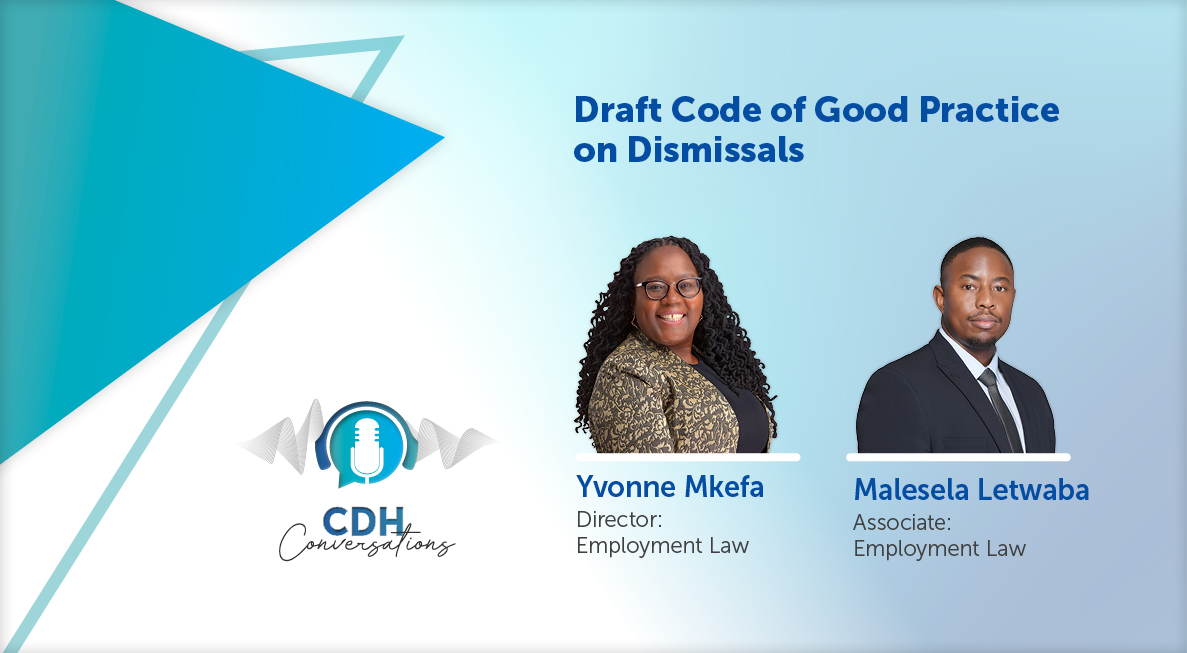Certification of class actions – a matter of timing
NUMSA, a trade union, applied for leave to continue, as class representative of all the beneficiaries of the Mogale Alloys Trust, an already pending action as a class action. The action was instituted against the trustees of the trust for their alleged malfeasance. The respondents in the application, and in the pending action, were the three trustees.
Van der Linde, J set out the background to class actions in our law. He referred to four conclusions arrived at by the Supreme Court of Appeal in Children’s Resource Centre Trust and Others v Pioneer Food (Pty) Ltd and Others 2013 (2) SA 213 (SCA), the third and fourth of which are particularly relevant for purposes hereof. The third of such conclusions was that a prospective class representative ought first to apply to court for class certification before she/he would have the right to litigate on behalf of a class. The fourth was the Supreme Court of Appeal’s laying down (per Wallis, JA) of seven requirements for certification of a class action.
Van der Linde, J also referred to the judgment of the Constitutional Court in Mukaddam v Pioneer Foods (Pty) Ltd and Others 2013 (5) SA 89 (CC) where Jafta, J stressed that class certification must be constrained and guided by the interests of justice and that the requirements laid down in Children’s Resource Trust were in truth relevant factors, not requirements, and none in itself decisive.
In his judgment Van der Linde, J pointed out that, since Children’s Resource Centre and Mukaddam, a full court of the Gauteng Local Division has in Nkala and Others v Harmony Gold Mining Co and Others 2016 (5) SA 240 (GJ) issued a comprehensive certification order “in a mammoth class action concerning gold mines’ alleged liability for silicosis and tuberculosis of their employees over a substantial period of time”.
In Children’s Resource Centre the court has therefore expressly laid it down as a requirement for a class action that the party seeking to represent the class should first apply to court for authority to do so. That requirement was endorsed by the Constitutional Court in Mukaddam.
NUMSA nevertheless challenged the submission that prior application for certification was a requirement. It submitted that Nkala did not interpret Children’s Resource Centre in this way. It contended that the court had a discretion and, since the respondents could not have suffered any prejudice, the court should in the exercise of that discretion “ratify the summons”. And it submitted that, in any event, even if prior certification was a requirement, it has not “calcified” into a hard rule, but that the ultimate criterion for certification was whether the interests of justice justified it.
Van der Linde, J said that, as he saw it, Children’s Resource Centre did not intend to lay down the requirement of prior certification as a substantive component of class certification. The seven Children’s Resource Centre requirements go to the substantive content of the certification application. And it was in regard to the latter, not the timing of the application, that the Constitutional Court in Mukaddam held that they should be considered as factors that assist in determining whether the interests of justice require certification. But on the requirement that the application should precede the summons, so Van der Linde, J concluded, the Constitutional Court clearly approved Children’s Resource Centre. Mukaddam explained that the very raison d’etre for prior certification was that courts should retain control over class actions. The only way in which potential class actions that hinder the interests of justice can be kept out of the justice system, is to preclude them from getting there in the first place. A court confronted with a fait accompli would find itself in an invidious position when having to assess whether the interests of justice require certification.
In National Union of Metal Workers Van der Linde, J therefore held that an application for class certification has to be brought before institution of the class action. Van der Linde, J further held that, even if the court had the power to permit ex post facto certification, it was not to be granted in this case.
The information and material published on this website is provided for general purposes only and does not constitute legal advice. We make every effort to ensure that the content is updated regularly and to offer the most current and accurate information. Please consult one of our lawyers on any specific legal problem or matter. We accept no responsibility for any loss or damage, whether direct or consequential, which may arise from reliance on the information contained in these pages. Please refer to our full terms and conditions. Copyright © 2026 Cliffe Dekker Hofmeyr. All rights reserved. For permission to reproduce an article or publication, please contact us cliffedekkerhofmeyr@cdhlegal.com.
Subscribe
We support our clients’ strategic and operational needs by offering innovative, integrated and high quality thought leadership. To stay up to date on the latest legal developments that may potentially impact your business, subscribe to our alerts, seminar and webinar invitations.
Subscribe




